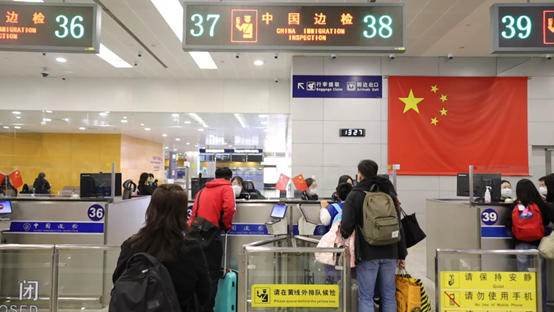Navigating China Tensions: Why U.S. Businesses Must Prioritize Secure Phone Communications
As geopolitical tensions between the United States and China intensify, the need for secure phone communications has become urgent. U.S. businesses operating in or interacting with China must take a proactive stance to protect sensitive communications, employee privacy, and corporate data.
The Geopolitical Backdrop: Why Secure Phone Communications Are A Must
China's long-standing record of espionage activities targeting the U.S. is well-documented. From the infamous spy balloon incident in early 2023 to over two decades of documented espionage cases, the pattern is unmistakable. According to the Center for Strategic and International Studies (CSIS), Chinese intelligence operations have repeatedly targeted U.S. business and government sectors, often focusing on technology and trade secrets.
China’s proven capacity to intercept communications and extract data from mobile phones underscores the fact that mobile phone data is a prime target. A recent report revealed that Chinese espionage campaigns have scooped up data from thousands of U.S. mobile devices, leveraging network vulnerabilities and compromised apps (ABC News). Meanwhile, Axios recently highlighted how phone data often flows through Chinese-controlled infrastructure, raising serious cybersecurity red flags for international businesses.
Adding to the tension, the U.S. Department of State issued a travel advisory in November 2024, urging Americans to “exercise increased caution when traveling to Mainland China” due to arbitrary enforcement of local laws—including exit bans (U.S. State Department). These measures further underscore the need for digital and physical security when operating in or traveling to China.
Exit Bans: A Warning Sign for Business Travelers
One of the more aggressive tactics China has adopted is the imposition of exit bans on U.S. citizens. These bans have ensnared American businesspeople and expatriates alike. Diplomatic disputes, trade disagreements, and technological rivalries have fueled these tensions, with some exit bans reportedly used as leverage in political negotiations.
A July 2025 incident underscored the severity of this risk: Beijing reportedly blocked a U.S. government employee from leaving the country, sparking outcry from U.S. officials over the lack of transparency and legal justification (Reuters). These actions heighten the need for mobile device policies that anticipate worst-case scenarios—including physical separation from sensitive corporate data.
Scaling Back: U.S. Firms Reassess China Presence
Given these risks, many prominent U.S. firms are retreating from the Chinese market. Prominent law firms like Winston & Strawn, Wilson Sonsini, and Seyfarth Shaw have closed their mainland offices in recent months, citing strategic and regulatory challenges.
In the tech sector, Amazon Web Services scaled back its AI and research operations in China in 2025, and McKinsey & Company has reduced its presence, particularly in AI-related consulting. These moves reflect a strategic decoupling that’s reshaping how global businesses engage with China.
The Rise of Burner Phones and Device Restrictions
For companies that maintain a presence in China or send employees for business travel, the focus is now squarely on mobile security. Firms like BlackRock have begun restricting use of corporate devices in China, while others—like KPMG and Deloitte—have issued a mandatory burner phone policy when staff travel to the region (Yahoo Finance, Firstpost).
While burner phones may reduce exposure, they fall short of providing truly secure phone communications due to their minimal security features.
Elevating Secure Phone Communications to a Core Business Strategy
U.S. businesses can no longer afford to treat mobile security as a technical afterthought—especially when operating in high-risk environments like China. Exit bans, surveillance capabilities, and regulatory volatility are converging to make mobile devices both a liability and a target.
Organizations must adopt a proactive, policy-driven approach that includes device restrictions, employee education, and secure communication tools. The Sotera SecurePhone offers secure phone communications through its encrypted communications, privacy-by-design architecture, and advanced threat protections that shield against espionage and data interception.
Stay ahead of the curve. Learn more about how the Sotera SecurePhone enables secure phone communications even in the most challenging regions.

 Navigating China Tensions: Why U.S. Businesses Must Prioritize Secure Phone Communications">
Navigating China Tensions: Why U.S. Businesses Must Prioritize Secure Phone Communications">





Leave a Reply
Your email address will not be published.*